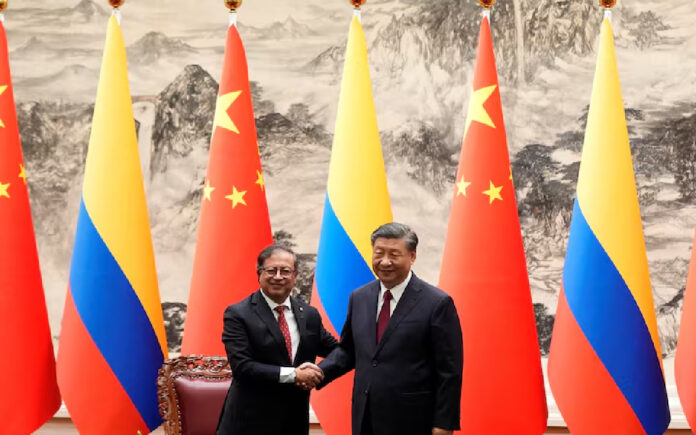Beijing: China and Colombia have formally signed a joint cooperation plan under the Belt and Road Initiative (BRI), marking a significant step in expanding bilateral ties and Beijing’s growing presence in Latin America. The agreement was finalized in Beijing following a meeting between Chinese President Xi Jinping and Colombian President Gustavo Petro.
Colombia’s Foreign Minister Laura Sarabia described the move as a landmark decision for the South American nation.
“The signing of this cooperation plan opens up a horizon of endless opportunities in trade, investment, and tourism. There is no turning back: Colombia is resolutely opening up to the world,” Sarabia wrote on X.
In recent years, increased commercial engagement between China and countries in Latin America and the Caribbean has amplified Beijing’s influence in a region long regarded as strategically vital by the United States. Colombia’s alignment with the BRI signals a notable pivot in its foreign economic policy.
President Xi Jinping emphasized China’s commitment to deepening its partnership with Colombia. According to state-run Xinhua,
China is ready to import more high-quality products from Colombia, back its firms in investing and doing business there, and join in infrastructure construction.
Also Read | India’s Bhargavastra System Scores Direct Hit in Counter-Drone Trials
China currently stands as Colombia’s second-largest trading partner after the United States, and recently surpassed Washington as Colombia’s top source of imports. The Belt and Road Initiative, launched by Xi in 2013, aims to revitalize ancient trade routes through global infrastructure development and economic collaboration.
President Petro, who assumed office in August 2022, first visited China in October 2023, during which the two nations elevated their ties to a strategic partnership—building on diplomatic relations first established in 1980.
Also Read | Mir Yar Baloch Declares Balochistan’s Independence, Seeks India’s Backing
More than 150 countries have joined the BRI, including over 20 Latin American nations. However, the pact has also drawn criticism from the United States and its allies. In February, Panama withdrew from the initiative, a move China attributed to U.S. pressure.
Colombia’s inclusion in the BRI signals a deepening of South-South cooperation and may open new avenues for infrastructure development and economic diversification in the region.



